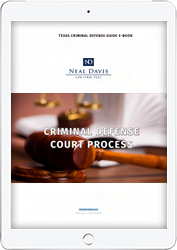
What Are Your Rights When Arrested?
Exploring your legal rights if you’re arrested
Do you know what your rights are if you’re arrested?
You should, because those rights can be violated by arresting officers, which might bolster your chances of getting a charge dropped or dismissed.
Also, knowing your rights can guide how you behave when you’re arrested — a vulnerable time when it’s best to say little, if anything.
Your Miranda Rights
First, you’ve no doubt heard of the “Miranda rights,” determined by a 1966 U.S. Supreme Court case called Miranda vs. Arizona.
Those rights are proclaimed time after time by police officers in movies and on TV. As they say in the Miranda warning, “You have the right to remain silent. Anything you say can be used against you in a court of law. You have the right to the presence of an attorney. If you cannot afford an attorney one will be appointed for you.”
Another often unmentioned Miranda right is this one:
If you do choose to speak to police, you have a right to stop answering their questions at any time. Some questions may be especially sensitive or incriminating.
Such rights should be proclaimed before any questioning by arresting officers. But an important distinction is that Miranda rights only have to be read when someone is arrested — thus, in custody — and law officers wish to question them.
Arrests can occur anywhere, from public sidewalks to a police station. The important distinction requiring Miranda rights to be read is that you must be held in custody where you are not free to go. If you’re not yet in custody, and thus not under arrest, Miranda rights don’t need to be read. Technically, a police can question you without them.
Of course, that doesn’t mean you can’t refuse to answer, whether you’ve heard your Miranda rights or not.
A trick police commonly play is to avoid arresting you but then questioning you anyway — without having to alert you to your right to remain silent or speak privately with an attorney. Police are only required to read your Miranda rights to you after you’ve been placed in custody.
If police have you in custody and don’t read your Miranda rights, your case will not necessarily be dismissed. Though your answers to police can’t be used against you in court, there may be enough other evidence to still prosecute you.
Keep in mind that you don’t have to cite your Miranda rights to police to avoid answering. You can simply say “I’m not going to talk to you. I want an attorney.” Or you can say “I invoke my Miranda right.”
The Fifth Amendment
Along with your right to hear the Miranda warning in advance of questioning by police, you also have a right to cite the Fifth Amendment in refusing to answer their questions. That amendment to the U.S. Constitution grants you the right to avoid self-incrimination, or proclaiming yourself to be guilty.
With that in mind, you could refuse to answer questions by saying: “I plead the Fifth Amendment” or the common “I plead the Fifth.”
Prosecutors may try to use this refusal against you, but rest assured it’s not an admission of guilt. It’s simply an assertion of your legal right to remain silent in the face of questioning about a crime.
You also have a right not to be subjected to physical or psychological coercion by police to get you to talk to them. Any evidence police get via a coerced statement is inadmissible.
DNA Samples and Breathalyzer Tests
You have some rights upon arrest to refuse giving bodily samples, such as in a breathalyzer test after a DWI traffic stop. In fact, under Texas law you can refuse a breathalyzer and blood test. But that same refusal could result in suspension of your driving privileges for 180 days if it’s your first DWI arrest.
The U.S. Supreme Court has gone further. It ruled in Maryland v. King that police could collect DNA samples at any time from persons arrested for serious crimes.
Warrants
As for arrest warrants, you don’t have a right to avoid arrest, even if police lack a warrant. As long as police have “probable cause” to believe you’ve committed a crime, they can arrest you.
An exception is if you’re in your home, given the old adage: “A man’s home is his castle.” Then, an arrest warrant may be needed.
Search and Seizure
You also have legal rights when police seize and search your computer. In most cases, police must get a search warrant to do this. And even then, you have a legal right to refuse giving police passwords or other keys to unlock your devices, whether they’re computers or cell phones.
We hope we’ve cleared up some things you should know when wondering about your rights upon arrest. If you need that attorney the police say you can consult, contact the Neal Davis Law Firm. Our experienced Houston criminal defense attorneys can help you understand your constitutional rights.
Criminal Defense Court Process
FREE E-BOOKLearn all about the legal process and your legal rights.

